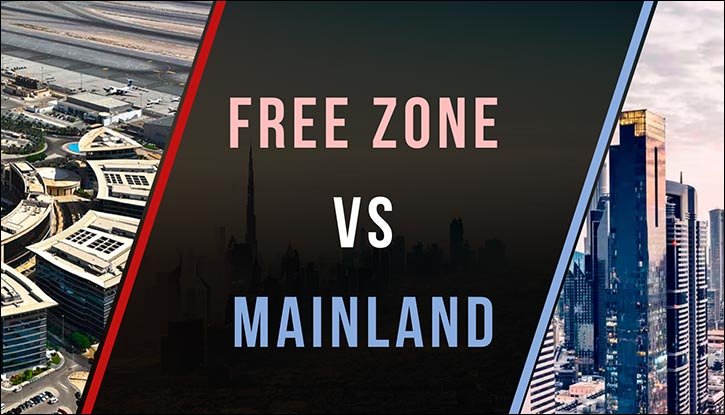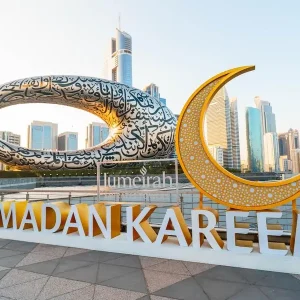Starting a business in the UAE is one of the most attractive opportunities for entrepreneurs around the world. With its strategic location, tax-friendly policies, and diverse economy, the UAE offers several options for business setup. However, one of the most important decisions to make is choosing between Mainland and Free Zone.
While both options offer incredible benefits, they cater to different needs. Understanding the key differences can help you make the right choice based on your business model, target market, and future goals.
Let’s dive into the major distinctions between UAE Mainland and Free Zone businesses in 2025.

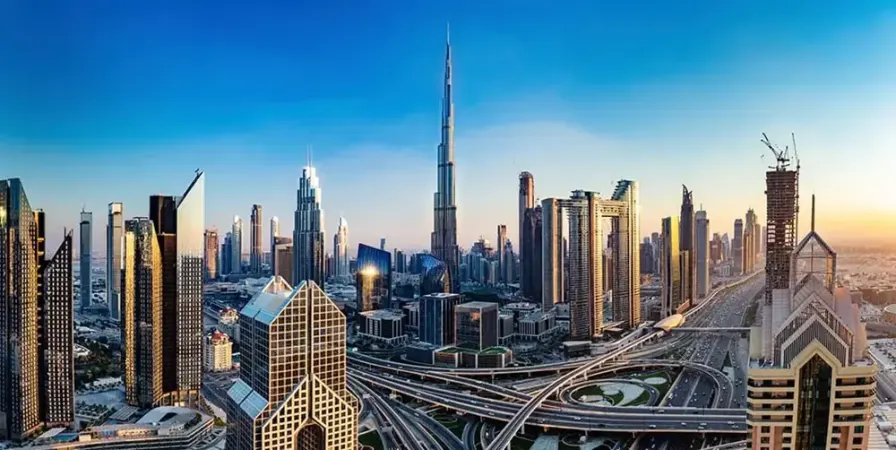
Ownership Structure
- Mainland: As of recent reforms, foreign investors can now own 100% of certain business activities in the mainland without needing a UAE national sponsor. However, for some strategic sectors, local sponsorship may still apply.
- Free Zone: You can enjoy 100% foreign ownership without exceptions. Free zones are designed to attract foreign entrepreneurs by removing the need for a local partner or sponsor.
Verdict: Both now offer full ownership, but Free Zones still provide simpler structures for startups and solo entrepreneurs.
Business Scope and Market Access
- Mainland: Businesses can trade anywhere in the UAE and internationally. They are not restricted by geography and can take on government contracts and large corporate clients in the UAE.
- Free Zone: Companies are generally restricted to operating within the free zone or international markets. If they want to trade in the UAE mainland, they must appoint a local distributor or open a branch office.
Verdict: Mainland wins for market flexibility, especially if you want to target UAE-based clients or government sectors.

Office Space Requirements
- Mainland: Requires a physical office space. Even virtual or shared offices must meet a minimum size, usually 140 sq. ft. or more.
- Free Zone: Offers flexible options, such as virtual offices, coworking spaces, or flexi-desks. This makes them cost-effective and ideal for freelancers or startups.
Verdict: Free zones are better for businesses looking for low-cost, flexible office solutions.
Setup Time and Process
- Mainland: The process can involve several government approvals, and depending on the activity, can take 7–14 working days or more.
- Free Zone: Usually faster and more streamlined. Many free zones offer setup within 3–5 working days, with all services under one roof.
Verdict: Free zones are more efficient in terms of speed and convenience.
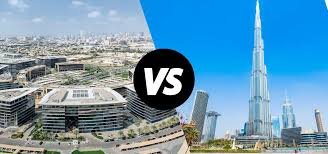
Cost and Licensing Fees
- Mainland: Can be more expensive, especially when considering office rent, employee visas, and regulatory approvals. But there’s greater flexibility in operations.
- Free Zone: Offers cost-effective packages, often including license, visa quota, and office in one bundle. Some start as low as AED 5,000 to AED 10,000.
Verdict: Free zones offer lower entry costs, making them ideal for small businesses and startups.
Visa Eligibility and Limits
- Mainland: No strict limits on the number of visas. The number of employee visas is usually determined by office size and activity.
- Free Zone: Visa quotas are limited by package. Some entry-level licenses allow 1-2 visas only, but these can be upgraded later.
Verdict: Mainland is better if you plan to scale a large workforce in the UAE.
Audit and Compliance Requirements
- Mainland: Certain businesses must maintain audited financial statements annually, especially for larger operations or those in regulated sectors.
- Free Zone: Some free zones don’t require audit reports for small companies, while others do. It varies by zone and license type.
Verdict: Free zones may offer easier compliance, especially for small businesses.
Reputation and Branding
- Mainland: Often perceived as more credible and established, especially for B2B services, government contracts, and regional expansion.
- Free Zone: While recognized, some clients (especially in government or public sectors) may prefer working with mainland-registered companies.
Verdict: Mainland registration may offer an edge in brand perception and client trust.
Renewal and Operational Flexibility
- Mainland: Renewal involves multiple departments like DED, Municipality, and Immigration. It’s straightforward but can be time-consuming.
- Free Zone: Fast and simple renewal process, usually handled online or through a single-window portal.
Verdict: Free zones are better for businesses looking for hassle-free renewals and operations.
Industry and Sector Preferences
- Mainland: Ideal for sectors such as retail, construction, consulting, healthcare, and logistics, where access to the UAE market is essential.
- Free Zone: Best suited for IT, media, marketing, design, e-commerce, and trading, especially those working remotely or targeting global clients.
Verdict: Choose based on the nature of your business and client base.
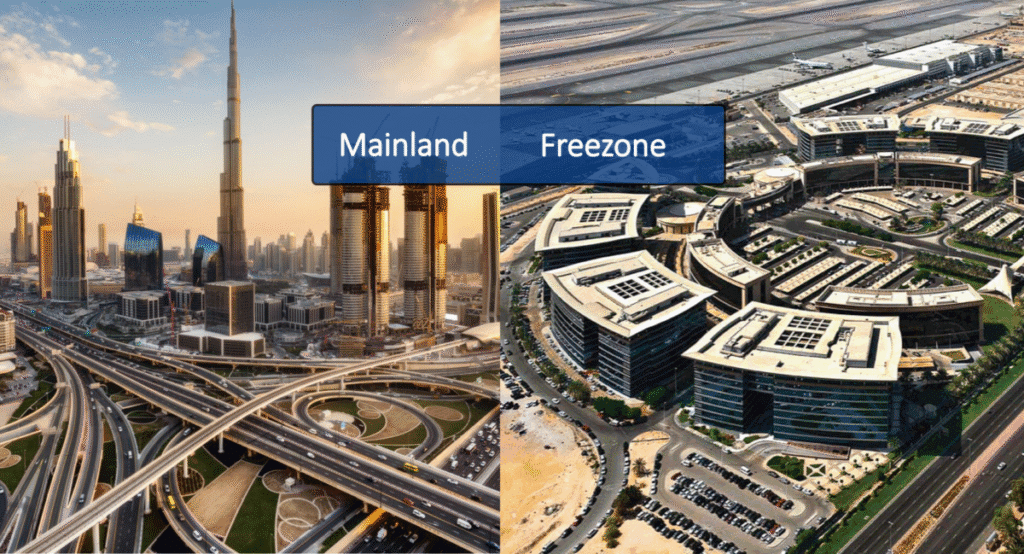
Summary: Quick Comparison Table
| Feature | Mainland | Free Zone |
|---|---|---|
| Ownership | 100% (for most activities) | 100% |
| UAE Market Access | Full access | Restricted, needs local agent |
| Office Requirement | Physical office required | Flexi-desk/virtual options |
| Setup Speed | Moderate | Fast and simple |
| Costs | Higher | More affordable |
| Visa Limits | Flexible | Limited by package |
| Audit Requirement | Yes (for some) | Optional (zone dependent) |
| Brand Reputation | High | Moderate |
Final Thoughts: Which One Should You Choose?
- If your goal is to trade within the UAE, work with government clients, or build a large team, then Mainland is the way to go.
- If you want a cost-effective, low-risk, and quick setup, especially for remote or global operations, Free Zone is your best option.
Ultimately, both Mainland and Free Zone offer compelling advantages—it’s about aligning your choice with your business strategy, growth plan, and operational needs.
Do follow UAE Stories on Instagram
Read More: Travel smart this summer: UAE doctors share vital health tips

